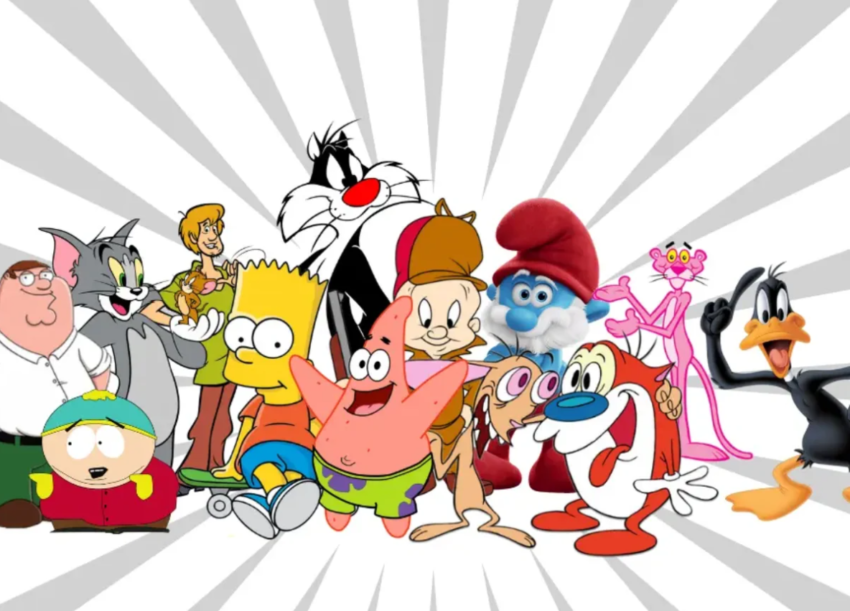Cartoon characters have been more than just sources of entertainment; they have become cultural icons that influence various aspects of society. From shaping fashion trends to embedding themselves in our language and promoting social values, these characters have left an indelible mark on pop culture. This article explores the cultural impact of some of the most iconic cartoon characters.
Mickey Mouse: The Global Icon
The Birth of an Icon
Mickey Mouse, created by Walt Disney and Ub Iwerks in 1928, is arguably the most recognizable cartoon character worldwide. Mickey’s debut in “Steamboat Willie” was a groundbreaking moment in animation history, introducing synchronized sound to cartoons.
Cultural Influence and Merchandise
Mickey Mouse has become a symbol of joy and childhood nostalgia. His influence extends beyond animation into merchandise, theme parks, and global brand recognition. According to a 2020 report, The Walt Disney Company earned approximately $65.4 billion, with a significant portion attributed to merchandise and licensing deals related to Mickey Mouse.
Bugs Bunny: The Quintessential Trickster
Catchphrases and Personality
Bugs Bunny, created by Warner Bros. in 1940, is known for his clever catchphrases like “What’s up, Doc?” and his trickster personality. Bugs’ witty and irreverent style has made him a beloved character across generations.
Social and Political Satire
Bugs Bunny cartoons often contain subtle social and political commentary, reflecting the times in which they were created. His ability to outsmart authority figures and navigate tricky situations resonated with audiences during the turbulent war years and beyond, making him a symbol of resilience and cleverness.
Scooby-Doo: The Mystery Solver
A Timeless Franchise
Scooby-Doo, created by Hanna-Barbera in 1969, has become a timeless franchise, spawning numerous TV series, movies, and merchandise. The character of Scooby-Doo, along with his human companions, has entertained generations with their mystery-solving adventures.
Promoting Teamwork and Problem-Solving
Scooby-Doo has had a significant cultural impact by promoting themes of teamwork, problem-solving, and friendship. The show’s consistent message that curiosity and collaboration can overcome challenges has made it a positive influence on young audiences.
Pikachu: The Pokémon Phenomenon
Global Popularity
Pikachu, the mascot of the Pokémon franchise, has become a global phenomenon since its introduction in 1996. The Pokémon franchise, including video games, TV shows, and merchandise, has generated over $100 billion in revenue, making it one of the highest-grossing media franchises of all time.
Cultural and Economic Impact
Pikachu’s image is ubiquitous, appearing on everything from clothing to airplanes. The character has significantly influenced global pop culture, contributing to the widespread popularity of Japanese anime and impacting global marketing strategies. Pikachu is one of the yellow cartoon characters.
SpongeBob SquarePants: The Modern Icon
Unique Humor and Appeal
SpongeBob SquarePants, created by Stephen Hillenburg and debuting in 1999, quickly became a cultural icon with his unique blend of humor and optimism. The show’s quirky characters and surreal humor have captivated audiences of all ages.
Meme Culture and Internet Presence
SpongeBob SquarePants has had a substantial impact on internet culture, with countless memes and viral content derived from the show. Its influence on meme culture has made SpongeBob an enduring and relevant figure in modern pop culture.
Representation and Diversity: New Age Icons
Inclusive Characters
Recent years have seen the rise of cartoon characters that promote diversity and representation. Shows like “Steven Universe” and “The Legend of Korra” feature characters from various backgrounds, genders, and sexual orientations, reflecting a more inclusive society.
Social Impact
These characters not only entertain but also educate audiences about acceptance and inclusivity. Their presence in mainstream media helps normalize diverse identities and encourages positive social change.
Conclusion: The Enduring Legacy of Cartoon Characters
Iconic cartoon characters have significantly shaped modern culture, influencing fashion, language, and social values. From Mickey Mouse to SpongeBob SquarePants, these characters have become more than just entertainment figures; they are cultural icons that reflect and influence the world around us. Their enduring legacy continues to inspire and entertain, proving that the impact of cartoon characters on pop culture is both profound and lasting. Online platforms like Fandom, Cartoonwise, Cartoonvibe, and Craze Earth are the resources to know the traits and facts of cartoon characters.

